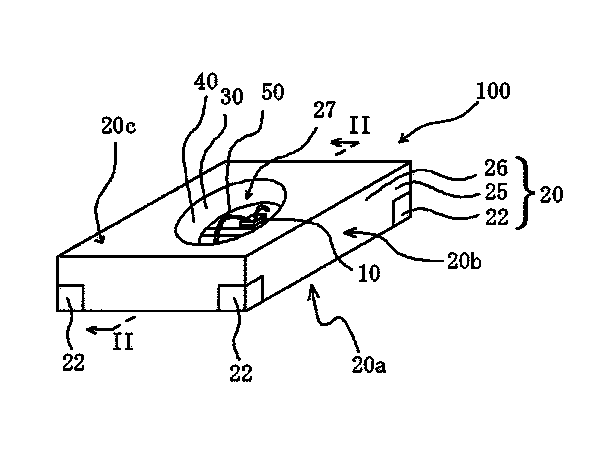Taiwanese LED manufacturer Everlight reported mixed results in several patent lawsuits rulings against Japanese manufacturer Nichia.
Earlier Thursday, Everlight announced the Eastern District of Michigan Court rejected Nichia’s appeal for a retrial of the company’s invalidated patents US 5,998,925 (925 patent) and US 7,531,960 (960 patent). The invalidated patents were Nichia’s YAG phosphor patents.
 |
|
A diagram from Nichia's US 8,530,250 (250 patent). (Photo courtesy of USPTO) |
The patent invalidation case was filed by Everlight in 2012, and the company received the court’s decision to turn down Nichia’s retrial appeal on Jan. 19, 2016. The Michigan federal jury reached the decision to invalidate 925 and 960 patents on the grounds of lack of enablement and obviousness in late April 2015.
Later during Thursday afternoon, Nichia stated in a press release that Eastern District of Texas court had upheld patent infringement cases filed against Nichia in 2013 involving LED resin and package patent US 8,530,250 (250 patent). The Texas court also found Everlight infringed Nichia’s U.S. patents No. 7,432,589 (589 patent) and No. 7,462,870 (870 patent).
Katsuyuki Akutagawa, Chief Legal & IP Officer and Company Board Director of Nichia told TechNews reporters the court ruling marked a significant victory against Everlight. The ruling would have a positive impact on improving the company’s competitiveness in lighting and automobile lighting applications. With regard to this patent litigation, its effective filing date has been extended to 2029, which significantly contributes to keeping Nichia’s technology ahead of competition.
“The 250 patent is very different from the previous 925 and 960 patents,” said Roger Chu, Research Director of LEDinside.The patent affects one of Everlight’s 3030 LED products, the XI3030 series, which potentially could be damaging.
However, further observations will be required to determine whether the ruling could result in large financial losses for Everlight. The Texas court’s recent ruling did not involve banning the sales of affected products, stated Everlight.
Moreover, the case is still in trial and is not the court’s final verdict indicating Everlight could still appeal.
From 2012 to 2013, the scope and impact from the two patent lawsuits is very different, according to LEDinside observations. When Everlight won its patent lawsuit in 2012, it was naturally optimistic about the outlook of future patent disputes. Even though the Texas court ruled Everlight lost the 250 patent infringement lawsuit filed in 2013, it did not approve Nichia’s request to ban the sales of Everlight products, which requires further observations.
According to the TechNews report, the two companies global patent disputes have been dragging for many years, and hostility built up between the two companies over this period will make it very difficult for the two sides to reach a settlement outside of court.












